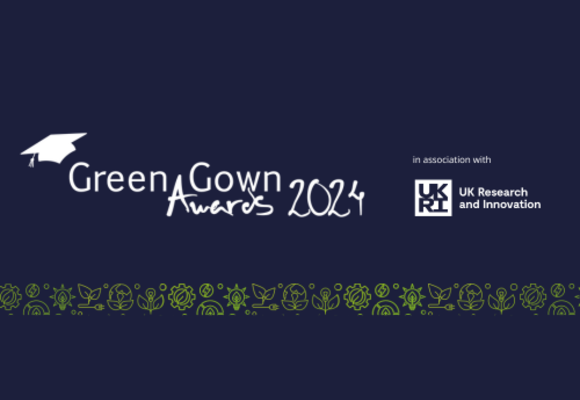At the first major global gathering since the COVID-19 pandemic, leaders faced up to the difficult decisions that lay ahead of them on a day of speeches, warnings and hope from presidents, prime ministers, and activists.
During the opening ceremony, calls for solidarity and the urgent action that is required to ensure that Glasgow delivers on the promise of Paris were echoed from COP26 President Alok Sharma, Prince Charles, Secretary-General for the UN Antonio Guterrres, Poet Yrsa Daley-Ward, Campaigner, Kenyan environment and climate activist Elizabeth Wathuti, UK Prime Minister Boris Johnson, and Sir David Attenborough.
Speaking at the opening ceremony, Sir David Attenborough said that “We [humanity] are already in trouble. The stability we all depend on is breaking” with “those who have done the least to cause this problem are the hardest hit.”
But he says there is still a chance to turn tragedy into triumph. “We are, after all, the greatest problem-solvers ever to have existed on Earth. We must use this opportunity to create a more equal world, and our motivation should not be fear, but hope.”
With new commitments on consigning coal to history, electric cars, reducing deforestation, addressing methane emissions and further commitment to mobilise finances, with several new finance announcements made during the opening of COP26, that action on the $100 billion delivery plan.
This increased financial commitment will help those countries most vulnerable to climate change, access the finance needed to help deliver climate adaptation and green recovery from COVID-19.
As part of the UK’s Clean Green Initiative UK Prime Minister Johnson announced:
· A package of guarantees to the World Bank and the African Development Bank to provide £2.2bn ($3bn) for investments in climate-related projects in India, supporting India’s target to achieve 450 GW of renewable energy installed capacity by 2030, and across Africa.
· The UK’s development finance institution, CDC, will commit to deliver more than £3bn of climate financing for green growth over the next five years. This will include £200m for a new Climate Innovation Facility to support the scale-up of technologies that will help communities deal with the impacts of climate change. This is double the amount of climate finance CDC invested in its previous strategy period from 2017-2021.
· The FCDO-backed Private Infrastructure Development Group (PIDG) will also commit more than £210m in new investment today (MON) to back transformational green projects in developing countries such as Vietnam, Burkina Faso, Pakistan, Nepal, and Chad.
UK Prime Minister Johnson also hosted a roundtable on Action and Solidarity with campaigners on climate change, before hosting a COP26 reception at the Kelvingrove Art Gallery and Museum. Members of the Royal Family also joined world leaders, where The Queen delivered a video message urging attendees to “rise above the politics of the moment” and achieve “true statesmanship”.
The most positive news came later in the day with India’s pledge to meet a target of net zero emissions by 2070 by Prime Minister of India Narendra Modi.
If you missed the Earth to COP film shown during the Opening Ceremony, you can catch up on all the action of the summit by going to the Cop26 YouTube Channel.
UKUPC DAY 2: MEMBER FOCUS
As part of the COP26 University Network, over 15 NEUPC members and affiliates are part of a group of over 80 UK-based universities and research centres working together to ensure that the UK academic sector plays its role in delivering a successful COP26, creating lasting partnerships and legacies beyond this single event.
We asked the University of Birmingham, University of Sheffield and the University of York about what COP26 means to them and their institutions long term objectives as part of our COP26 member focus today.
For the University of Sheffield (UoS) “The aims of COP26 are crucial to our collective health, wellbeing and livelihoods; our entire way of life depends on the success of our action to tackle climate change.” Explains James Merryclough, the universities Sustainability & Communications Manager.
“As one of the small number of UK universities awarded passes to the inner Blue Zone at COP26, we'll be helping to shed light on the talks by sharing insight and expert comment from our academic and student attendees. We'll also be highlighting how our research is finding practical solutions to global food, energy and climate challenges and showcasing our work to make our campus more sustainable and meet our 2030 carbon neutrality target. “
Find out more about the UoS representatives, events and latest news and comments from COP26 here.
The University of Birmingham (UoB) is leading the way in the sector through research to help mitigate and adapt to the risks and impacts associated with climate change and headline projects as: The Birmingham Institute of Forest Research (BIFoR) creating future climate conditions to help us understand our actions clearer today.
This year, the UoB will become the first university in the world to roll out “Internet of Things” (IoT) technology at scale. Starting in Autumn 2021, the first phase of this major energy efficiency project includes the roll out of 23,000 Enlighted IoT sensors across the University estate. Partnering with Siemens this will create the smartest university campus in the world, and in effect a living Lab across the University Estate which helps to understand and create a carbon neutral environment.
Jonathan Jones FCIPS, Director of Procurement and Insurance for the UoB said that “from a procurement perspective, I can’t personally change the World, however I can assist and support those within a university who are!”
Which is testament to the many awards and accolades this procurement operation has already won for its environmental approaches to procurement and contracting and measured results. You can find out more information about this project here.
The University are hosting ser events taking place across COP26 event, including
· a COP26 roundtable on activism
· student-led discussion on the different forms environmental activism can take and their importance
· how students contribute positively to climate change
· and how students from different disciplines make change.
To find out more about the UoB’s events during COP26 here.
When asked what does COP26 mean to the University of York (UoY), Rob Hunt, the universities Director of Procurement & Transactional Services said, “it is an opportunity for the university to showcase it's world leading climate relevant research, impactful environmental activities and make connections with new and influential partners - all with the aim of promoting environmental sustainability for all communities.”
The UoY hosted a suite of workshops and seminars in the week preceding COP26, focusing on COP26’s main themes. They have sent a delegation to COP26 to promote the UoY flagship initiative BioYorkshire, which will deliver a bold new green agenda to create jobs, boost the regional economy - and develop sustainable solutions for some of the UK’s most pressing environmental challenges. They will be engaging in both Blue and Green Zone events, hosting meetings, and attending workshops/seminars.
University activities in this space are guided by the principle of being for the public good and long-term environmental sustainability.
This is embodied in the new University Strategy 2030 and also The University of York Sustainability Plan. They have also made a commitment to achieving net zero carbon emissions on campus by 2030 (including carbon dioxide equivalent emissions of other greenhouse gases). Read more about their Sustainability Plan, net zero carbon emissions commitments, and how you can get involved on the Sustainability Plan feature and their Sustainability web pages. With environmental sustainability sitting at the heart of their vision, this week they are launching the Environmental Sustainability Academy at York, a pan-institutional initiative that connects their research, education, and knowledge exchange activities with each other, and with the University’s Sustainability Plan. You can read more about the Academy and watch the launch video here.
The World Leaders Summit will continue today with further national statements and Leader events on action on forests and land use and accelerating clean technology, innovation, and development.










